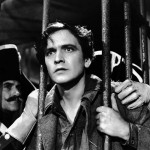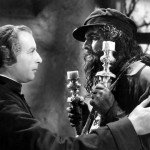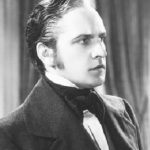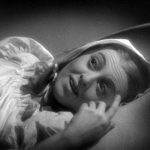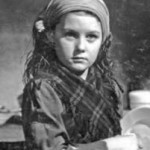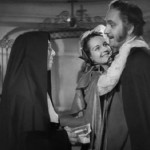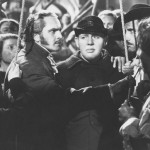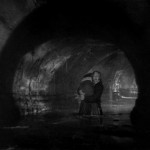
Les Miserables – 1935
This film was a pretty dull movie, but only because I have seen two different movie adaptations and the stage musical several times. It is a very watered-down version of Victor Hugo’s novel about the trials and tribulations of Jean Valjean in a difficult time in history. He starts out as a tragic character who is sentenced to ten years of hard labor for trying to steal a loaf of bread to feed his starving niece.
Anyone who knows the stage musical knows that the story has some intensely dramatic moments, acts of cruelty, acts of generosity, moments of romance and disaster, death and despair, and at the end redemption and forgiveness. It is a plot that takes the audience to the heights and depths of their emotions.
However, this particular adaptation had so little emotional depth that I was amazed. So many things were changed from the original novel, which made it almost family-friendly. Here are a few examples of what I mean. In the novel, the character of Fantine loses her job at the factory. She is forced to become a prostitute and then sell her teeth and her hair to pay the Thenardiers for keeping her daughter. There is no mention of this degradation in the film. For another example, in the novel, Valjean pays the Thenardiers 1,500 francs to settle Fantine’s debts and buy the 8 year old girl. The sick and seedy character of Monsieur Thenardier is effectively removed from the story all-together. So there is no haggling for the girl at all.
The numerous changes from the original novel took most of the miserableness out of the plot. Did they think that the audiences of the 1930s couldn’t handle the sleazy aspects of the story? Did they think that their version was more palatable than the original novel? If they had to water it down that much, then maybe they shouldn’t be making the movie at all. But the story is so popular that there have been no fewer than 53 other film adaptations over the years done in various countries all over the world, and the hit stage musical.
I think the film’s flaws all come down to one thing which explains why they removed most of the content that they did. They took out everything that might hint at the character’s motivations. They either never went into why anyone did anything or they changed their motivations to fit their altered plot.
The two worst examples of this were Inspector Javert’s suicide, and the reasons for the battle on the barricade. In Javert’s case, they never explained why he jumped off the bridge, why he chose death rather than finally capturing Valjean. There was a very specific and plausible reason at which the film vaguely hinted, but if you didn’t know the novel, there was no way you could have understood why he killed himself. Second, and I think that this was the greater transgression, they changed the conflict at the end from the revolutionary uprising of the anti-monarchist republicans to a protest about the severe treatment of criminals in the justice system, specifically galley slaves, like Valjean had been.
And finally, I’ll take a moment to comment on the acting. Fredric March played the lead as Valjean. He was handsome and did a very good job, though he sometimes appeared a bit small and frail when he was supposed to be remarkably strong from his years as a galley slave. Fantine, played by Florence Eldridge, is such a wonderful and tragic character, but they really dropped that ball with how much she was changed. The young Cosette, played by Marilyn Knowlden, was horrible. She was supposed to be a frightened and abused child. She didn’t seem to be either of those things. She fell into the child actor trap of playing cute for the sake of cute.
I didn’t care for the way Charles Laughton played Inspector Javert. He made the character emotionless when I think that the character should have been incredibly passionate, though misguided. The adult Cossette and Marius, played by Rochelle Hudson and John Beal were passable but unmemorable. Eponine, played by Frances Drake, was a character that was so changed from the original novel, that they should have just gone one step further and changed the name.
All in all, it wasn’t a horrible film, but it was so watered-down and changed that it was ultimately disappointing.
